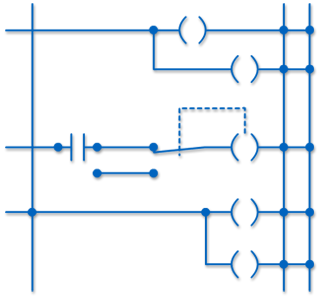I learned to use a logical step by step procedure using schematics and test meter to troubleshoot. Quite diverse and challenging. Well worth the time and money.Tim Bond, Electrician, Mitchell's Gourmet Foods, Saskatoon
Faulty Control Circuits
Objective: Find open and short circuit faults
Activity: Build typical sensor, relay and coil circuits and then diagnose faults
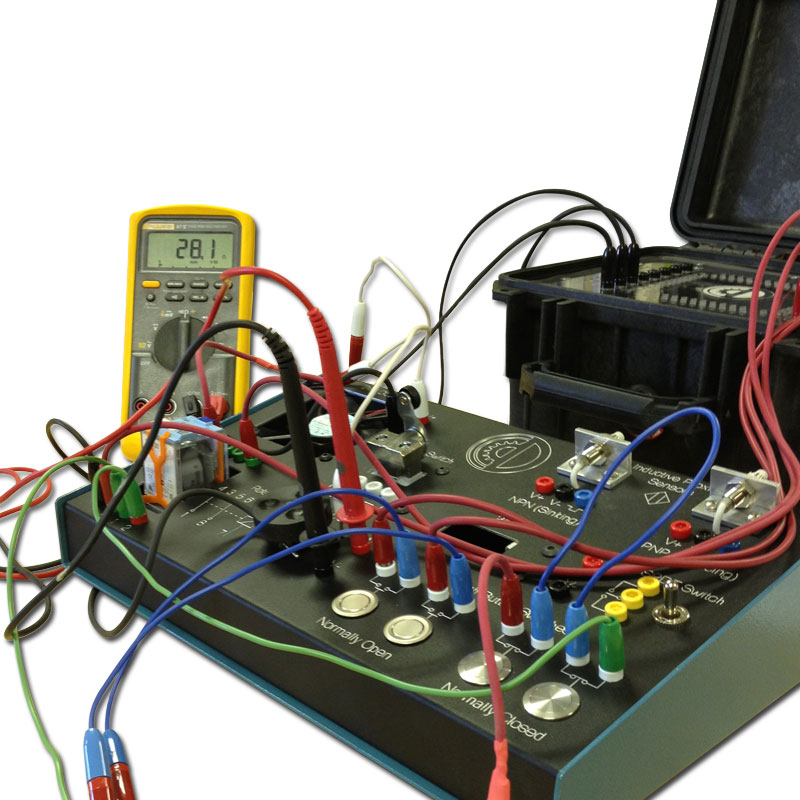
Work hands-on with our latest fault training panels
Methodical Approach to Troubleshooting
Objective: Troubleshoot an electrical circuit or system following a logical procedure
Activity: Analyze case studies of system faults
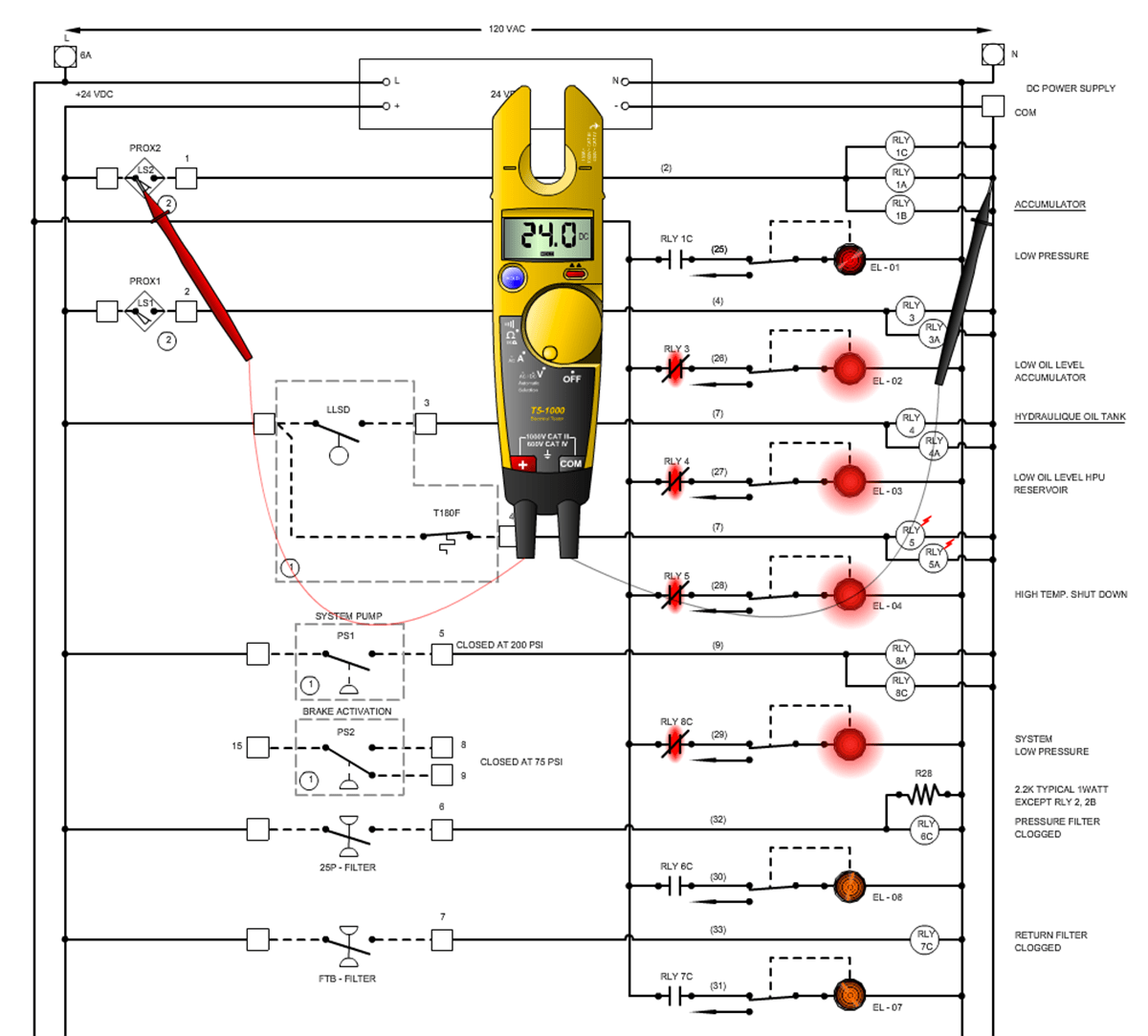
Learn the Ten Step Troubleshooting Process
I learned quicker, more insightful troubleshooting. Very comprehensive. Every electrician should take it.Gerald Toporowski, Industrial Electrician, General Motors, Oshawa Truck Plant
Basic Circuit Problems
Objective: Find open and short circuit faults
Activity: Read the logic of a circuit and make an analysis before meter tests are made
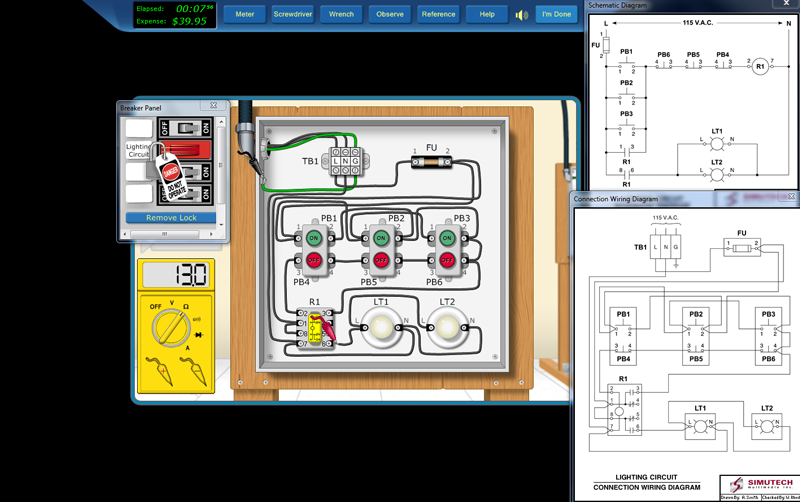
A loose wire might be the only problem - avoid part swapping by thinking logically
A good course for developing troubleshooting skills.Willy Grueber, Electrical Supervisor, Epcor Edmonton
Single Phase Control Systems
Objective: Troubleshoot single phase relay logic control systems
Activity: Analyze faults in a digital lock
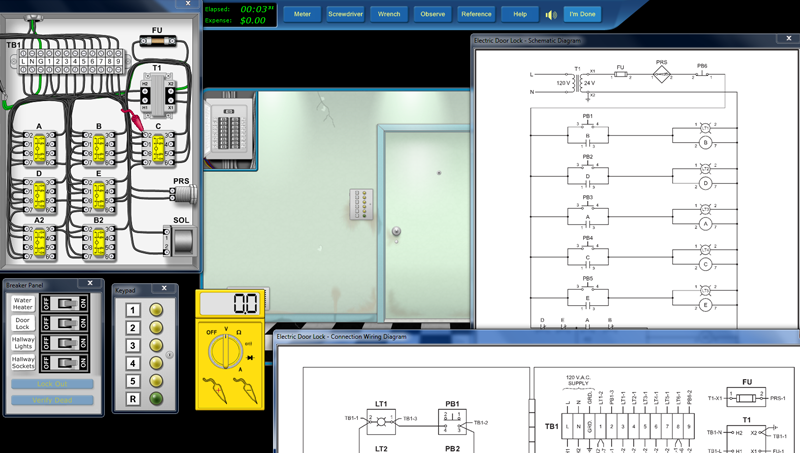
Make the minimum number of meter measurements to save time!
Three Phase Motor Control Systems
Objective: Troubleshoot three phase motor control systems
Activity: Analyze case studies of systems
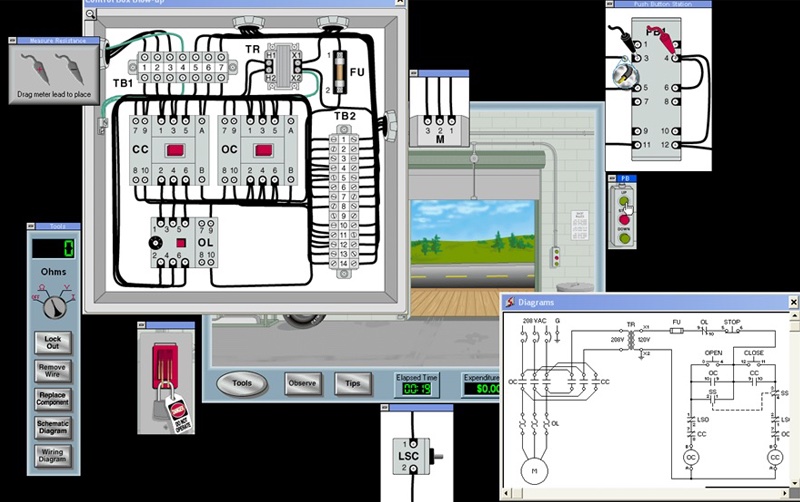
Troubleshoot by separating the sections of a complex door opener system!
You will learn to reason things out before starting to test with a multimeter. The course had lots of hands-on which was great.Plant Electrician
Introduction to Sensors
Objective: Methodically find faults with basic sensor circuits
Activity: Work with three wire proximity sensors in a complex circuit
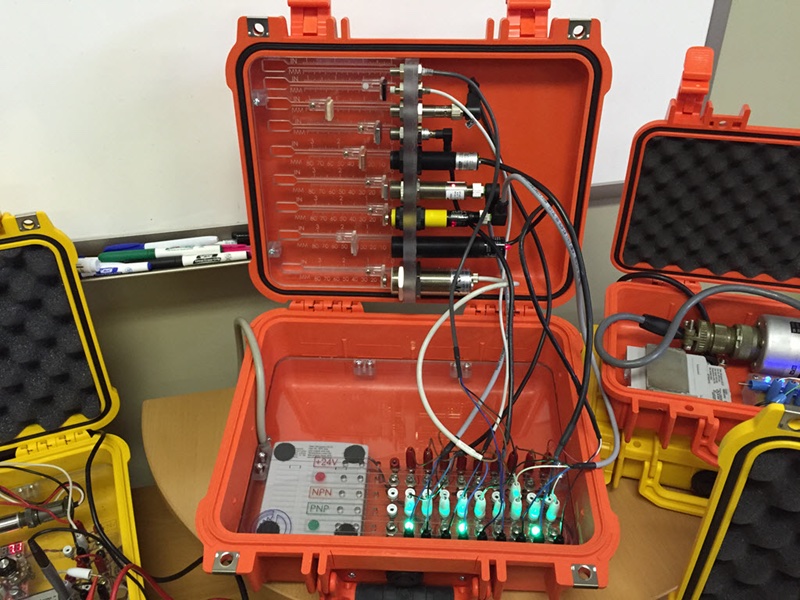
Know your sensor wiring and related electrical faults!

